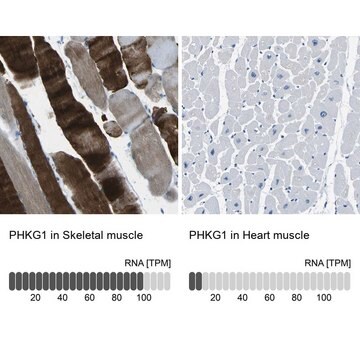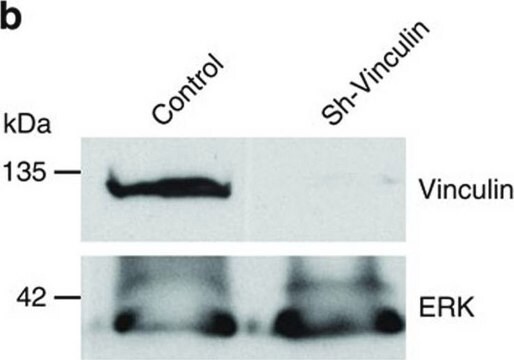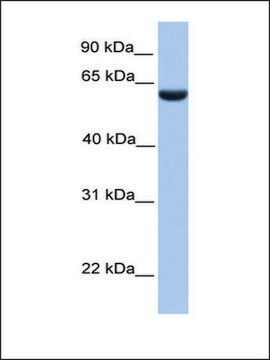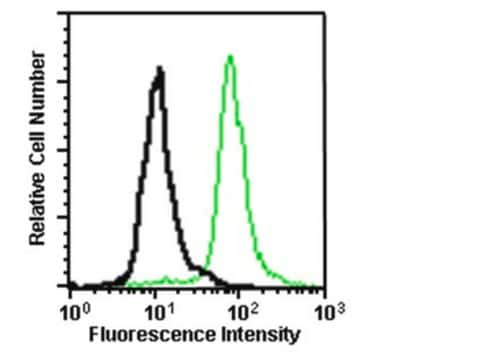MABE676
Anti-PHF1 Antibody, clone 12C2.1
clone 12C2.1, from mouse
Szinonimák:
PHD finger protein 1, hPHF1, Polycomb-like protein 1, hPCl1
About This Item
Javasolt termékek
biológiai forrás
mouse
Minőségi szint
antitest forma
purified immunoglobulin
antitest terméktípus
primary antibodies
klón
12C2.1, monoclonal
faj reaktivitás
human, mouse
technika/technikák
immunohistochemistry: suitable (paraffin)
western blot: suitable
izotípus
IgG2bκ
NCBI elérési szám
UniProt elérési szám
kiszállítva
ambient
célzott transzláció utáni módosítás
unmodified
Géninformáció
human ... PHF1(5252)
Általános leírás
Egyediség
Immunogen
Alkalmazás
Western Blotting Analysis: A 1:1,000 dilution from a representative lot detected PHF1 in 10 µg of HeLa cell lysate.
Epigenetics & Nuclear Function
Minőség
Western Blotting Analysis: A 1:1,000 dilution of this antibody detected PHF1 in 10 µg of mouse heart tissue lysate.
Cél megnevezése
Fizikai forma
Tárolás és stabilitás
Egyéb megjegyzések
Jogi nyilatkozat
Nem találja a megfelelő terméket?
Próbálja ki a Termékválasztó eszköz. eszközt
Tárolási osztály kódja
12 - Non Combustible Liquids
WGK
WGK 1
Analitikai tanúsítványok (COA)
Analitikai tanúsítványok (COA) keresése a termék sarzs-/tételszámának megadásával. A sarzs- és tételszámok a termék címkéjén találhatók, a „Lot” vagy „Batch” szavak után.
Már rendelkezik ezzel a termékkel?
Az Ön által nemrégiben megvásárolt termékekre vonatkozó dokumentumokat a Dokumentumtárban találja.
Tudóscsoportunk valamennyi kutatási területen rendelkezik tapasztalattal, beleértve az élettudományt, az anyagtudományt, a kémiai szintézist, a kromatográfiát, az analitikát és még sok más területet.
Lépjen kapcsolatba a szaktanácsadással








